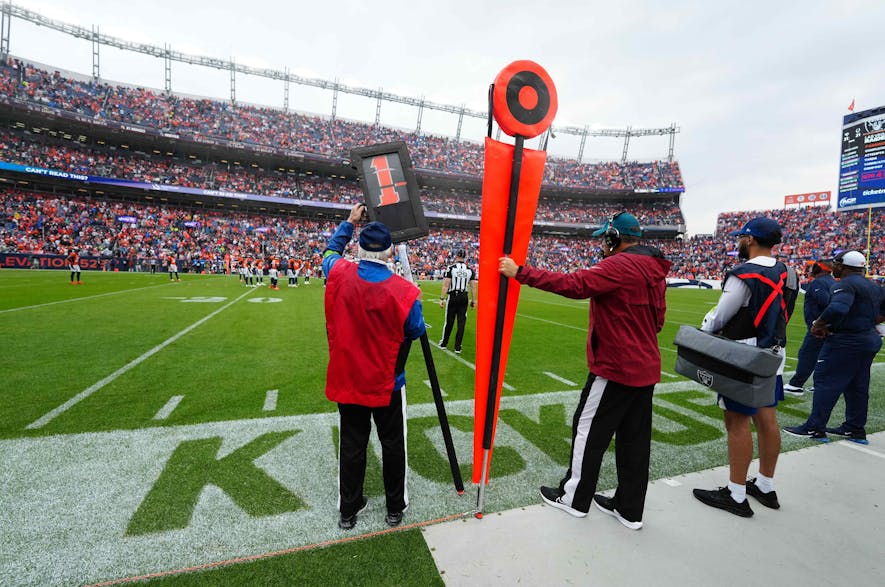There's a lot of strong dynasty analysis out there, especially when compared to five or ten years ago. But most of it is so dang practical-- Player X is undervalued, Player Y's workload is troubling, the market at this position is irrational, and take this specific action to win your league. Dynasty, in Theory is meant as a corrective, offering insights and takeaways into the strategic and structural nature of the game that might not lead to an immediate benefit but which should help us become better players over time.
Filler Words
Some words mean things. Other words have no lexical content-- meaning they contribute no meaning. These are commonly known as "filler words". Common examples include "um", "like", or "you know". One can, you know, simply remove them from a sentence without, like, changing what the sentence says or anything.
Filler words are bad; anyone who knows anything would tell you as much. They serve no purpose except to waste time and make you sound hesitant or unknowledgeable. Consider what Grammarly-- a tool designed to help improve one's writing-- has to say about them:
In most cases, filler words have a negative effect and reflect poorly on your communication skills... Good communication, both in speech and writing, demands conciseness. Essentially, the fewer words you use, the stronger your words become. When you remove all the unnecessary words, the listener or reader can focus more on the remaining, necessary words.
And as advice for eliminating them from your speech, it offers:
Despite fear of the “awkward silence,” a momentary pause in speech can be a powerful communication tool. A silence at the right time can urge your listener to reflect on your words, adding more significance to what was said last.
If you’re not sure of what to say next, don’t say anything at all. Keep calm and the words will come to you on their own. In the meantime, a small silence is often better than a string of filler words.
This largely mirrors what every English teacher, every editor, every speech coach, and every employer has ever said on the subject. One would have to be a fool to think filler words were good.
Readers, I am a fool. Filler words are great.

A Story About a Fence
When I wrote last year about potentially abolishing trade deadlines, I shared a principle called Chesterton's fence after philosopher G.K. Chesterton, who wrote
There exists in such a case a certain institution or law; let us say, for the sake of simplicity, a fence or gate erected across a road. The more modern type of reformer goes gaily up to it and says, “I don’t see the use of this; let us clear it away.” To which the more intelligent type of reformer will do well to answer: “If you don’t see the use of it, I certainly won’t let you clear it away. Go away and think. Then, when you can come back and tell me that you do see the use of it, I may allow you to destroy it.”
It's a useful rule: before advocating to be rid of something, make sure you first understand its purpose. Filler words may have no meaning, it is true, but this doesn't mean they don't have a purpose. In fact, their proper name is not "filler words", it is "discourse markers"-- a name that speaks much more to their true use.
What do Discourse Markers Mark?
Conversation is a serve-and-volley activity; it’s all about using efficient turn-taking strategies to keep it moving forward. Sometimes you need to stop and think, but if you pause and go silent, the laws of conversation dictate that you have concluded your turn and it is now your partner’s turn to respond.
Sometimes you haven’t concluded your turn, you just need a moment to finish your current thought. Discourse markers serve an important role as a signal to your partner that you are not quite ready for them to respond and you need a brief moment to think before you continue. Conversational partners recognize this and happily (if unconsciously) oblige, knowing they’ll eventually need the same courtesy.
If you follow Grammarly's advice above and sprinkle your speech with pauses, you will not encourage your listeners to reflect on what you have said so far. You will encourage your listeners to interrupt your thought and begin their own.
There is something you can use to cause listeners to reflect more carefully on what you are saying, though. Would you believe that thing is... filler words?
The aspiring reformers are right; discourse markers do signal that you're struggling with a more complex thought and need extra time to process it. Studies find that even toddlers have learned the laws of conversation and recognize this fact. But when faced with a signal that you are taking time to gather your thoughts, toddlers begin paying closer attention, assuming the thing they are about to hear will be especially novel or complicated, requiring extra attention to understand.
Indeed, children learn concepts better when the explanation of those concepts is sprinkled with "umm"s and "uhh"s than they do when the concept is presented fluidly, stripped of all discourse markers. The so-called filler words pique their interest and engage their attention.
Filler words are— not to put too fine a point on it— vital to the efficient functioning of society and one of the greatest examples of linguistic reciprocity (which, as my sons could tell you, is my favorite word in the English language). They beautifully encapsulate the collaborative spirit of mankind.

That's Not All They Do
Continue reading this content with a ELITE subscription.
An ELITE subscription is required to access content for Dynasty leagues. If this league is not a Dynasty league, you can edit your leagues here.
